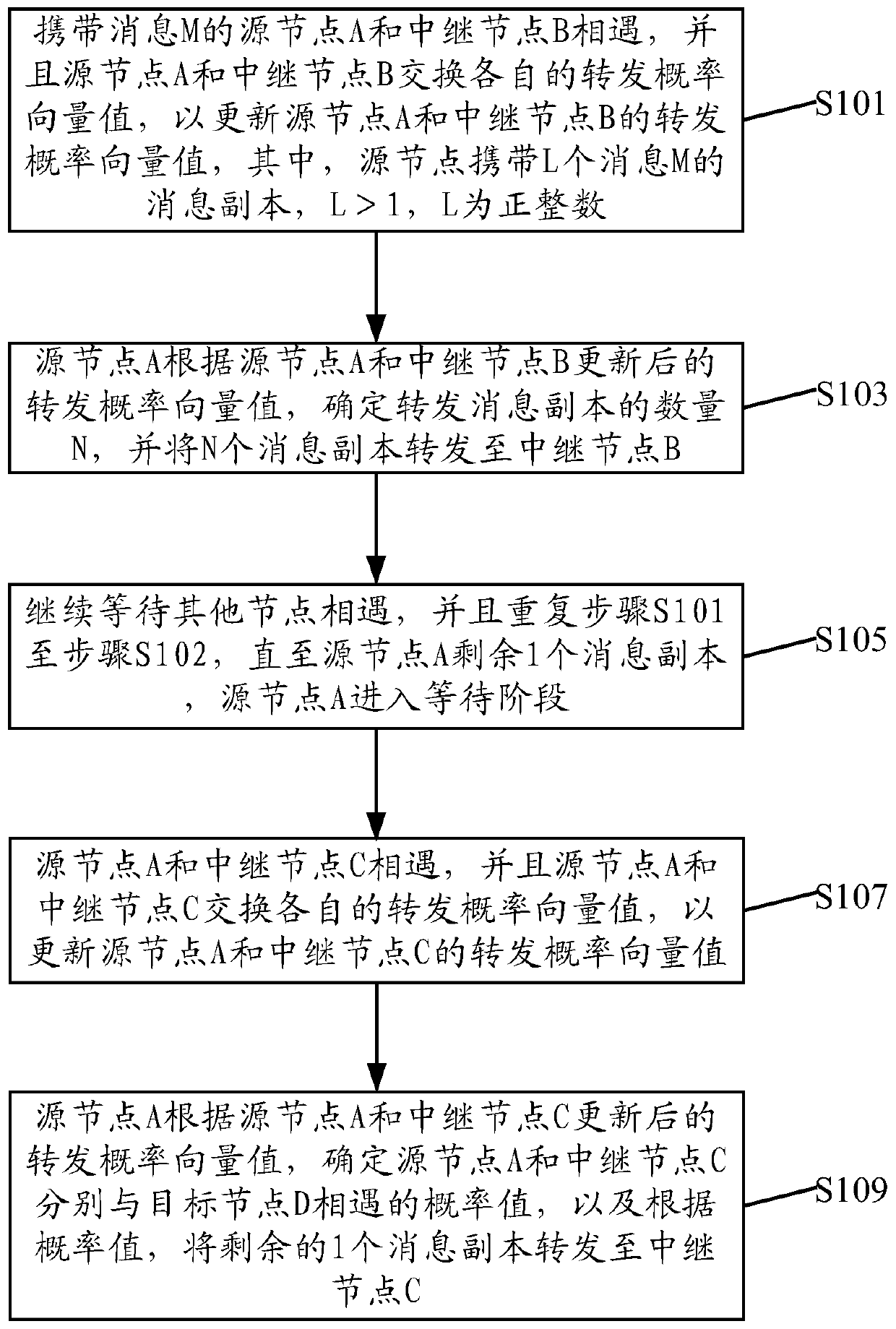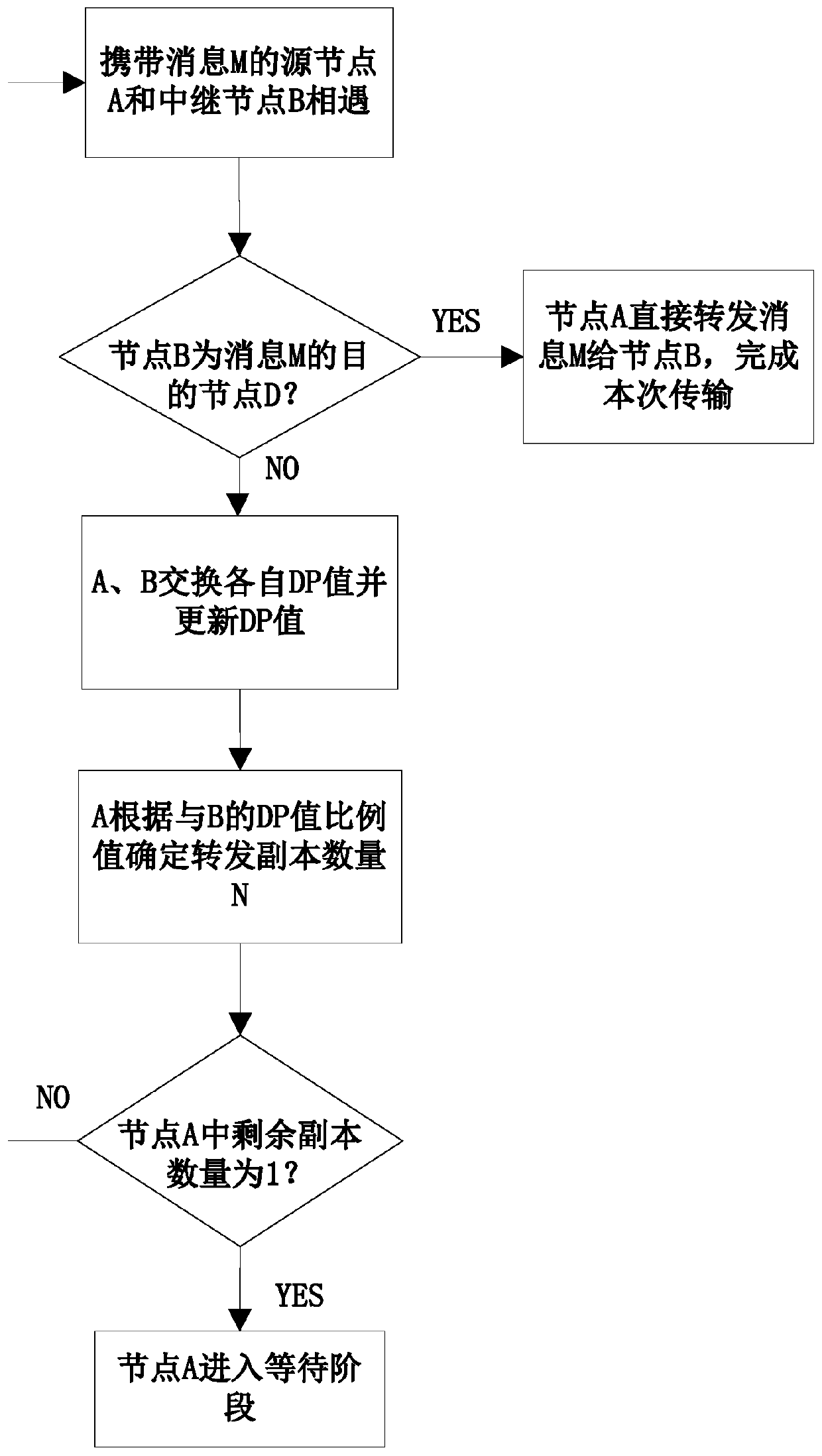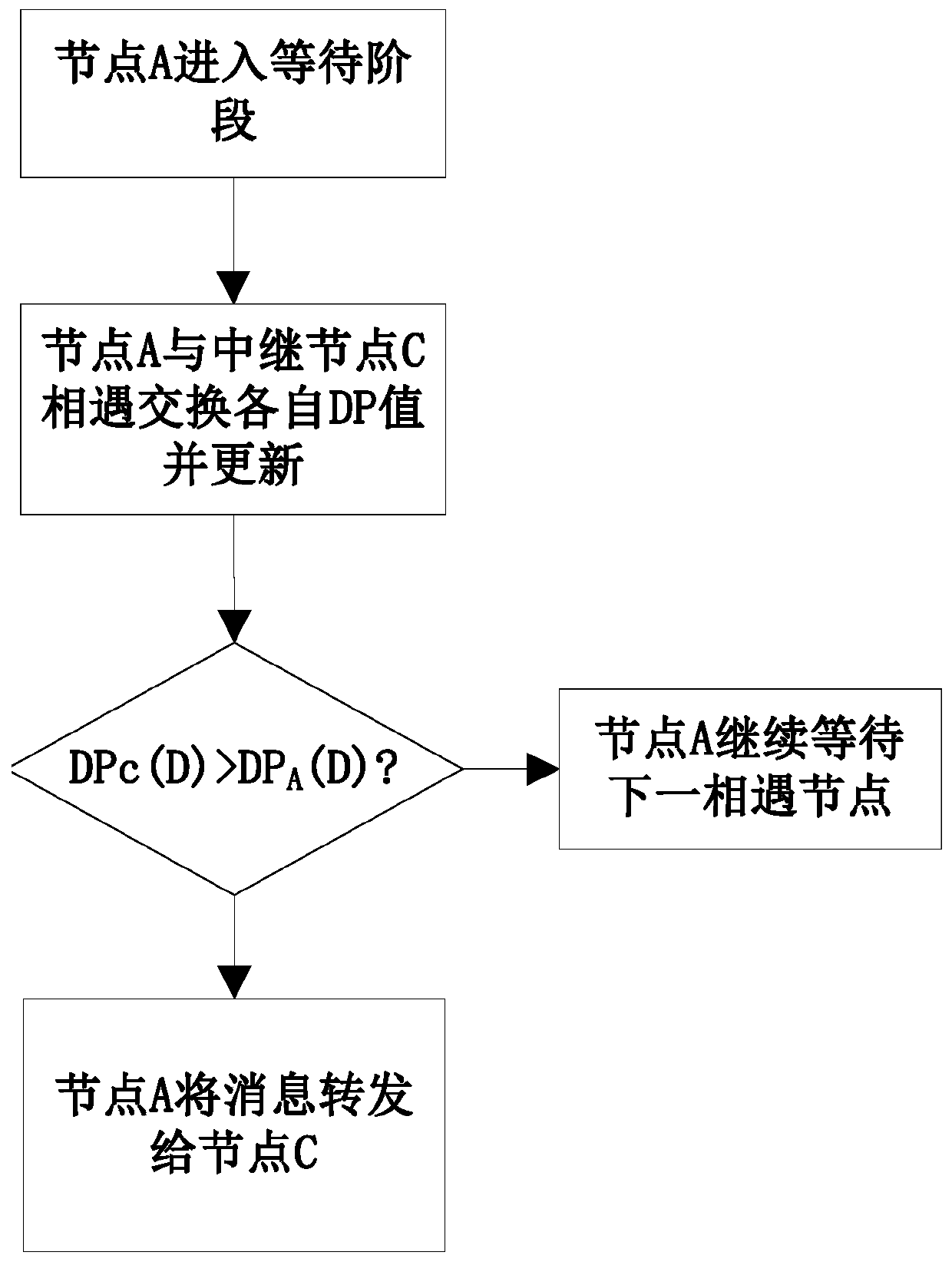A Routing Algorithm Based on Forwarding Probability
A technology of forwarding probability and algorithm, applied in the field of routing algorithm based on forwarding probability, can solve the problems of limited node energy, increased message transmission delay, sparse node distribution, etc.
- Summary
- Abstract
- Description
- Claims
- Application Information
AI Technical Summary
Problems solved by technology
Method used
Image
Examples
Embodiment Construction
[0042] The following will clearly and completely describe the technical solutions in the embodiments of the present invention with reference to the accompanying drawings in the embodiments of the present invention. Obviously, the described embodiments are only some, not all, embodiments of the present invention. All other embodiments obtained by persons of ordinary skill in the art based on the embodiments of the present invention belong to the protection scope of the present invention.
[0043] According to an embodiment of the present invention, a forwarding probability routing algorithm is provided.
[0044] Such as figure 1 As shown, the routing algorithm according to the embodiment of the present invention includes: wherein, the distributing phase includes:
[0045] Step S101, the source node A and the relay node B carrying the message M meet, and the source node A and the relay node B exchange their respective forwarding probability vector values to update the forward...
PUM
 Login to View More
Login to View More Abstract
Description
Claims
Application Information
 Login to View More
Login to View More - R&D
- Intellectual Property
- Life Sciences
- Materials
- Tech Scout
- Unparalleled Data Quality
- Higher Quality Content
- 60% Fewer Hallucinations
Browse by: Latest US Patents, China's latest patents, Technical Efficacy Thesaurus, Application Domain, Technology Topic, Popular Technical Reports.
© 2025 PatSnap. All rights reserved.Legal|Privacy policy|Modern Slavery Act Transparency Statement|Sitemap|About US| Contact US: help@patsnap.com



